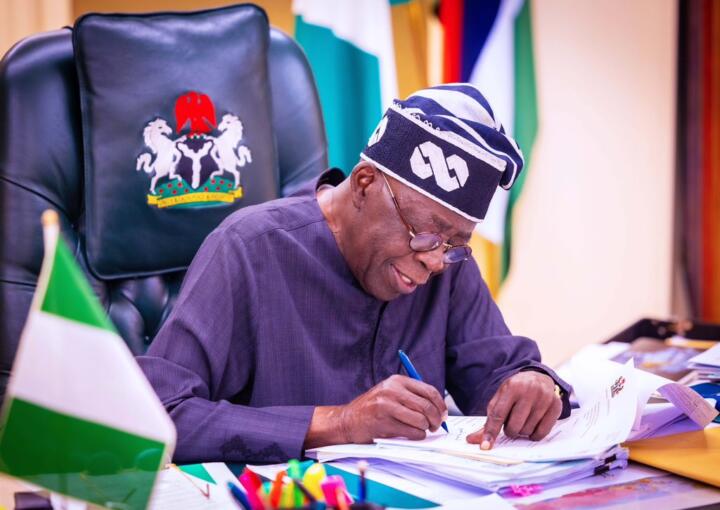The federal government has set its sights on boosting corporate Nigeria’s combined gross operating profit to a substantial N9.3 trillion in 2024. This ambitious goal is expected to result in generating a substantial company income tax revenue of N3 trillion in the same year, a significant leap from the budgeted N1.9 trillion for 2023. This bold target was revealed in the Medium Term Expenditure Framework released by the federal government recently, signaling the government’s intention to bolster corporate tax revenues significantly.
The government’s projection also encompasses a total of N20.69 trillion in the Net Federal Account revenue pool, which is divided among the federal government, states, local government authorities (LGAs), the National Assembly, and the judiciary. A substantial portion of this revenue projection hinges on corporate taxes, as the government aims to capitalize on the growth of businesses and corporate profitability to boost tax revenues.
Corporate Taxes: A Strategic Focus
The government’s vision is clear – a robust corporate tax base, as reflected in the N3 trillion corporate tax revenue target for 2024, which is anticipated to grow further to N3.3 trillion by 2025 and N3.7 trillion by 2026. The government’s strategy for this ambitious revenue goal is based on various factors, including estimating a gross operating profit of N9.3 trillion in 2024, from which it will tax 30% as company income tax.

According to the Medium Term Expenditure Framework, the projections for corporate income tax are rooted in factors such as nominal GDP estimates, Companies’ Profitability Ratio, and improved collection efficiency. It assumes that firms’ Gross Operating Profits, on which CIT forecasts are based, will average N9.3 trillion for 2024, N10.6 trillion for 2025, and N11.2 trillion for 2026, considering the growth of domestic economic activities and the successful implementation of the National Development Plan 2021-2025. The government also anticipates a broader tax base as the historical growth in online transactions is expected to continue.
Despite the government’s optimistic revenue targets, economic challenges have posed threats to corporate profits in the real sector. Data from the first seven months of the 2023 budget performance indicate that the government earned an aggregate revenue of N1.1 trillion from corporate income tax compared to the N544.41 billion target, suggesting a need for the expansion of the tax net and expectations of higher profits to reach the set revenue targets.
VAT Revenue Projections
Apart from corporate taxes, the government also projects an increase in VAT revenue, aiming for N3.6 trillion in VAT revenue, up from the N2.7 trillion budgeted for 2023. This projection is based on an expected increase in consumption expenditure. The government assumes that consumption expenditure, subject to VAT, will rise from an average of N35 trillion in 2024 to N40 trillion in 2025 and N45 trillion in 2026, factoring in exemptions, zero-rated items, and companies with turnovers below the N25 million threshold.
The government expects that more VAT payers will be brought into the tax net with the effective implementation of the provisions of various Finance Acts. These VAT revenue projections over the medium term are based on maintaining the VAT rate at 7.5%. Nevertheless, raising the VAT rate remains an option for the government to consider.
A Commitment to Tax Reform
Taiwo Oyedele, Chairman of the Presidential Committee on Fiscal Policy and Tax Reforms, has assured Nigerians that President Bola Tinubu’s administration will not impose higher tax rates on the populace. Instead, the committee’s goal is to reduce the number of taxes and levies imposed on Nigerians while harmonizing revenue collection to alleviate the tax burden on individuals and businesses. According to Mr. Oyedele, the committee’s objective is to avoid taxing investment, capital, production, or poverty. The plan includes a comprehensive review and overhaul of major tax laws to reduce the need for frequent changes through annual finance acts.
President Tinubu initiated the Presidential Committee on Fiscal Policy and Tax Reforms, with Mr. Taiwo Oyedele at the helm, tasked with enhancing Nigeria’s revenue generation and business environment. The federal government aims to achieve an 18% Tax-to-GDP ratio within three years, illustrating its commitment to tax reform and revenue generation without imposing additional tax burdens on the populace.
Support InfoStride News' Credible Journalism: Only credible journalism can guarantee a fair, accountable and transparent society, including democracy and government. It involves a lot of efforts and money. We need your support. Click here to Donate
